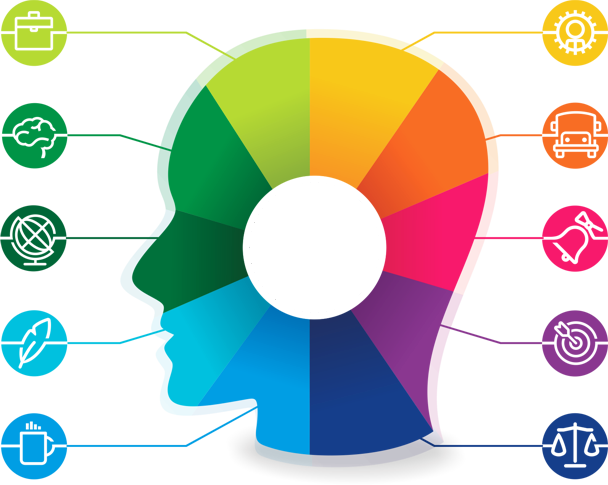SOFT-SKILLS TRAINING
In-company training is organized to improve the social skills that employees encounter. The common purpose of all such training is to achieve learning goals and to be permanent. The target audience of these training can cover all levels from front-line employees to managers.
Virtual reality creates a safe space for such training. Employees in this space can be prepared by making them face unexpected things. During the training, it is ensured that they are fully aware of the situation. VR is a great technology because that offers the opportunity to self-criticize by seeing the behaviors and decisions taken during the training with an outside eye at the end of the training.

PROCEDURES
Adopting procedures is a requirement for most operations of a company. These procedures are created for specific reasons. And it’s usually either based on a standard or experience. It is very important to know and apply these procedures. During this learning process, it is aimed to avoid interruption in the workflow and to complete the training in the most efficient way possible. These procedures range from hazard identification at the production sites to the equipment usage instructions at the points of sale. With VR Training Solutions, employees have hands-on learning to learn and practice the process. More importantly, employees contribute earlier in the field because training times are significantly shortened. Also, employees do not have to wait for the trainer to be on the field.

COMMUNICATION
Effective and productive communication is the best way to create an inclusive workplace. Employees need chances to practice their communication abilities and learn techniques. But how do you have these opportunities to learn, make mistakes, and evolve in a healthy environment?
Since virtual reality helps learners feel like they’ve “been there before,” they can rely on their preparation when confronted with unpredictable and difficult circumstances. They will study and practice communication techniques that will help them remain on the message and handle questions appropriately.

DEAL CLOSING AND NEGOTIATION
Good managers and salespersons often demonstrate a combination of good human relations skills. VR also provides for practice in a controlled environment. Negotiation skills can be improvable with VR Training. Learners can evaluate their performance by watching and listening to themselves at the end of the training.
Additional to such social skills, sales necessitates planning, product understanding, and trust. VR preparation allows you to practice handling a lot of sales situations, such as looking for the correct prompts, talking about and product, and dealing with objections. VR preparation provides practical experience and the potential to make errors in a controlled atmosphere with these types of sales skills.

CUSTOMER RELATIONS
Dealing with unhappy customers and difficult circumstances is fairly normal, but it can be unpleasant and necessitates empathy and emotional intelligence. Recreate traditional consumer experiences so that associates can learn de-escalation techniques, constructive communication, and decision-making by controlling their feelings. It’s unlikely for employees in stores or call centers to know what consumers are going through, but every customer needs excellent service.
Employees at consumer touchpoints may use virtual reality experience to put themselves in the hands of their clients, making them more qualified to deliver exceptional, empathetic support. Associates can be moved from the shop or call center to the customer’s home using the microphone. They live the customer’s life rather than only reading about it or watching videos about it, which allows them to connect more authentically and have great service.

EMPATHY
All have a role to play in fostering a thoughtful work environment and business culture. But how do we educate and promote inclusive habits, as well as train teams and administrators for difficult discussions on these subjects with coworkers or customers? It’s so easy to create an impactful role-playing scenario and replace the character with the other person. “Once an idea has taken hold of the brain it’s almost impossible to eradicate. An idea that is fully formed – fully understood – that sticks; right in there somewhere.” Using VR for empathy-building is the most effective method to imbue employees with the company’s values.






